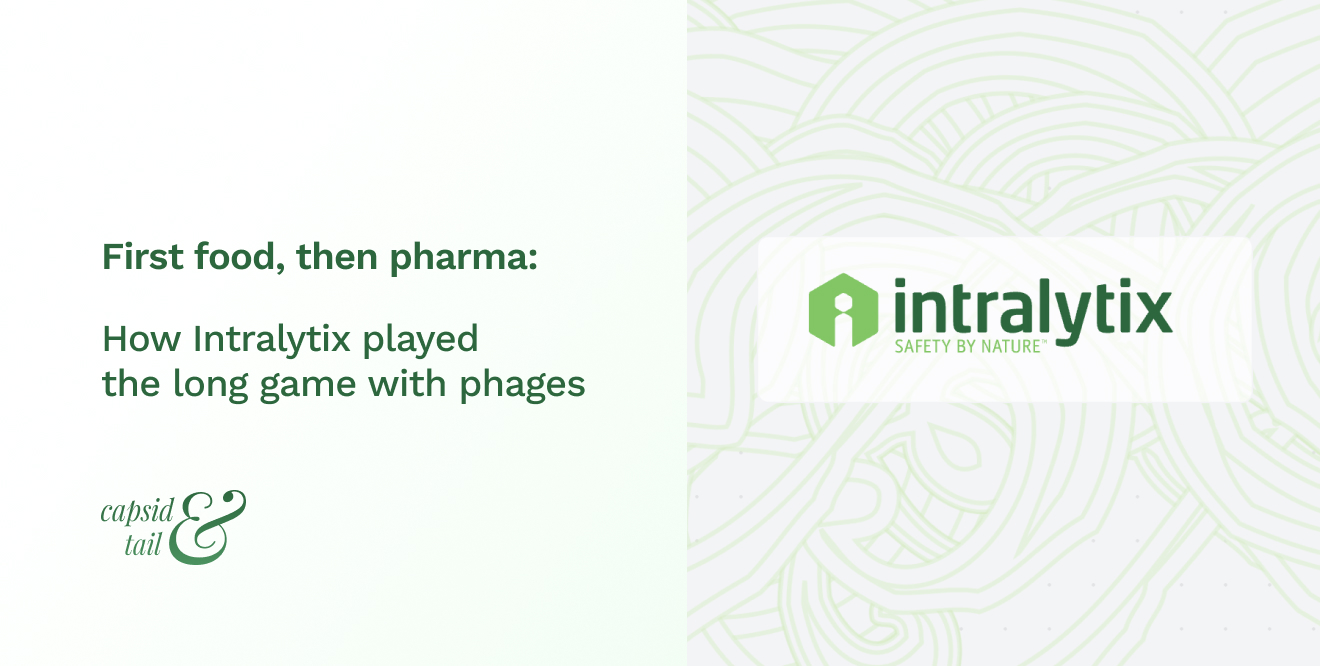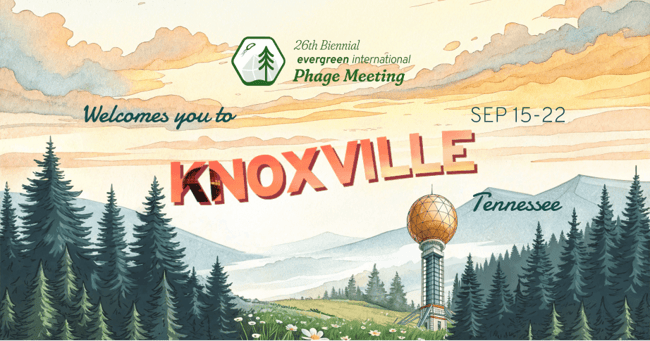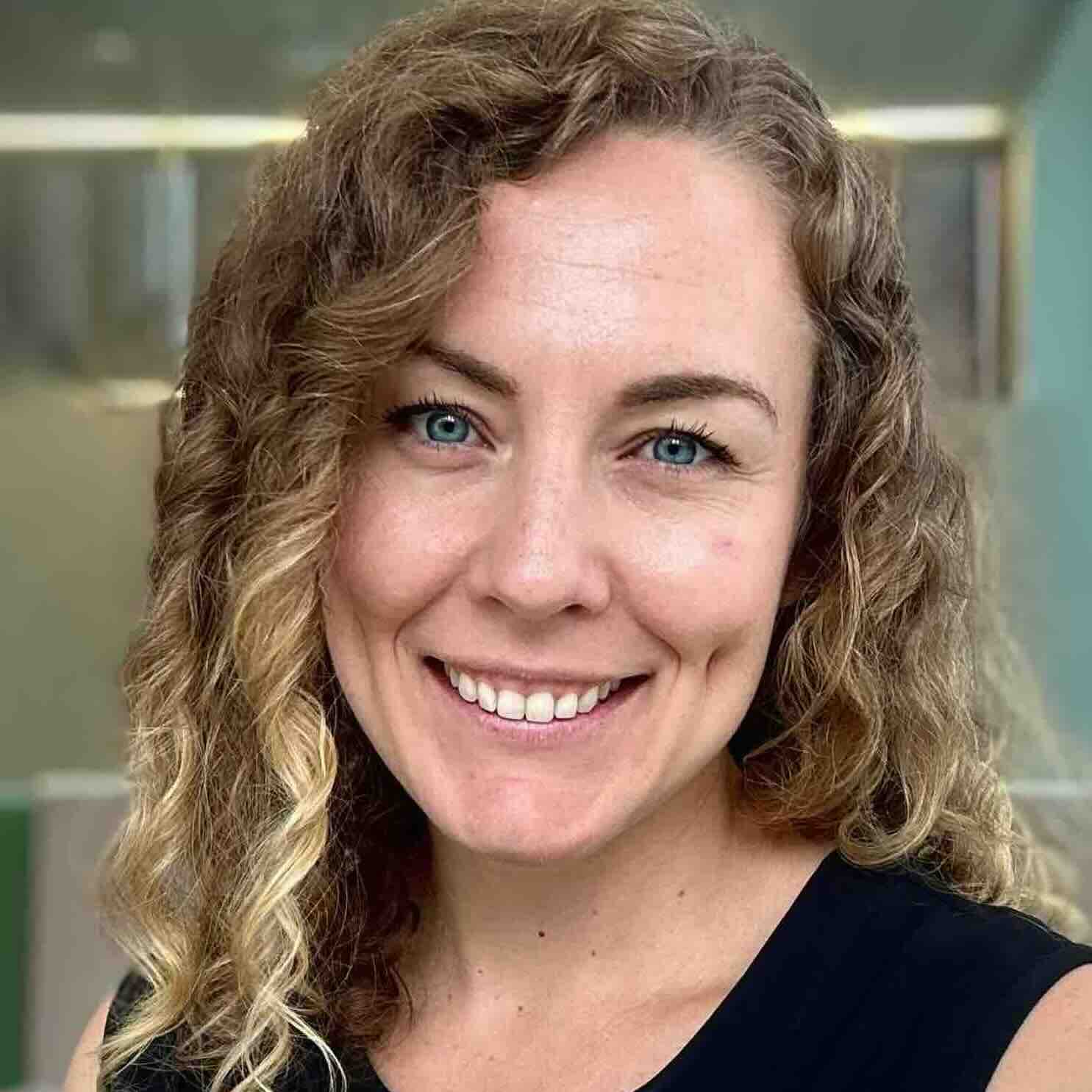From a chance conversation about a patient lost to antibiotic resistance, to pioneering FDA-approved phage products, Dr. Alexander “Sandro” Sulakvelidze shares Intralytix’s 25-year journey in our latest Podovirus podcast episode.
Growing up in Tbilisi, Georgia, where phage therapy was common, Sandro was shocked to see patients in the US dying from infections that could have been treated with phages. This realization led him to found Intralytix in 1998.
Intralytix’s unconventional path — starting with food safety applications before moving into human therapeutics — offers several lessons for the phage field. Today, Intralytix stands out as one of the few profitable phage companies (if not the only one?), with multiple FDA approvals in hand for food, and now some key ongoing human clinical trials.
Highlights from our conversation:
- Sandro has watched the phage field has transformed from complete skepticism to active engagement, with hundreds now attending phage conferences
- Intralytix wasn’t always food-focused; Sandro shares their strategic pivot to food safety applications and his thoughts on how this was crucial for their long-term survival
- How Intralytix worked with the FDA to get approvals for its phages, and Sandro’s views on regulatory barriers that exist for phages now
- Sandro’s views on how AI and machine learning are revolutionizing phage manufacturing, and how the system they set up now has 100% (!) success in predicting optimal production conditions for their phages
- How current regulatory concerns about transducing phages may be disproportionate given natural background levels (Sandro does math on the air!)
- Infrastructure for clinical phage therapy remains a major challenge, but why Sandro sees a ton of hope
A few snippets from the episode…
On the evolution of regulatory approval:
Sandro: “My experience with FDA has been very positive. Both CFSAN and CBER have been reasonable to work with. We were the first company to obtain FDA approval for phages in food safety applications — that was a historic moment that finally broke that barrier. We now have five FDA-approved products on the market for food safety.”
On manufacturing innovation:
“The variables you have to examine are mind boggling. What’s the best MOI? What’s the best harvest time? What are the aeration requirements? Using AI funded by NIAID, we’ve summarized 25 years of production data to predict optimal conditions. So far, we have 100% success — whatever the program predicts, we achieve in real life.”
On infrastructure needs:
“There is no infrastructure for phages currently in the medical community. Every major hospital has the ability to quickly determine bacterial susceptibility to antibiotics. There is no such thing for phages. You need instruments, trained personnel, and standardized testing methods. This will be one of the biggest challenges.”
Looking ahead…
Sandro’s 5-Year Vision:
- Continued focus on personalized medicine approaches
- Possible emergence of 1-2 mainstream products, likely through accelerated pathways
- Growth in nutraceutical phage products
- Gradual infrastructure development for phage therapy
Sandro’s 15-Year Vision:
- Multiple mainstream products on market (contingent on efficacy proof)
- Enhanced infrastructure including phage reference centers
- Expanded use of phages in microbiome modulation for conditions beyond infection
- Established reimbursement pathways
Jess’ reflection on the conversation
This was a great conversation, and I so appreciate Sandro’s openness about this entire quarter-century adventure he’s been on! This quote from Sandro stood out to me:
“Deep in my heart, there is no doubt this works. There are just too many successful stories.”
And yet, he acknowledges that this is not enough; the field’s future hinges on demonstrating efficacy in rigorous clinical trials.
I think this sums up the stance I hear most from phage professionals everywhere… we have a deep sense that we wouldn’t have so many successful case studies if phages didn’t work… but we know that’s not the evidence we need. What we need is a successful phase 2 clinical trial, stat! So thanks to all of you out there who are persevering toward this goal.
P.S. If you think your team is close (or you’re about to give up), come on the podcast and let’s chat!
What’s next for Intralytix:
Watch for results from Intralytix’s Shigella trial by mid-2025. This NIAID-funded study uses an FDA-approved challenge model and could provide crucial efficacy data the field needs.
Further reading:
This episode is part of our series exploring phage therapy from multiple angles. Thanks a million to Joe Campbell, my esteemed co-host, for helping steer this conversation to interesting new places, as always!
Stay tuned for an upcoming episode on drug pricing and regulatory pathways, with Amanda Burkardt, CEO of Phiogen Pharma!








